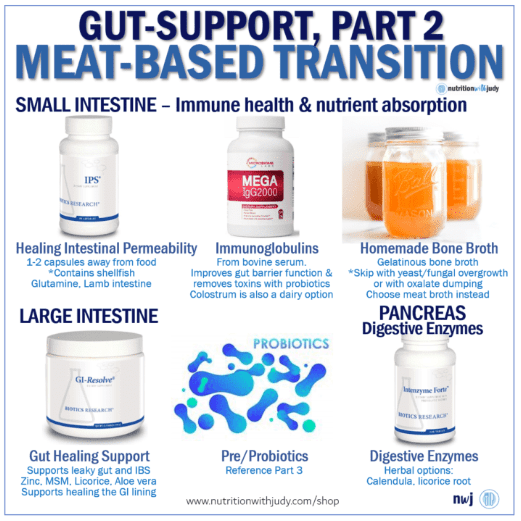

How Do You Prevent Keto Diarrhea?


Embarking on a low-carb/high-fat diet, such as the carnivore diet, marks the beginning of a transformative journey toward better health and wellness. However, as with any significant dietary shift, it’s not uncommon to experience some side effects. A frequent challenge encountered during this transition is keto diarrhea, also known as low-carb diarrhea. We will explore the reasons why this condition occurs, particularly when moving away from a traditional high-carb/low-fat diet.
Our focus is to provide you with comprehensive insights and practical solutions. We’ll discuss how the carnivore diet, with its unique nutritional profile, can be optimized to mitigate the effects of keto diarrhea. This includes understanding the balance of fats and proteins, the importance of hydration, and the role of gut health in adapting to a high-fat, low-carb diet. Our aim is to equip you with the knowledge and strategies needed to minimize discomfort and make your transition to the carnivore diet as smooth and beneficial as possible.
Through our expert guidance, we’ll help you navigate this common hurdle, ensuring that your switch to a healthier lifestyle is both comfortable and successful. Join us as we uncover the keys to preventing keto diarrhea and making the most out of your carnivore diet experience.
What Is the Carnivore Diet?
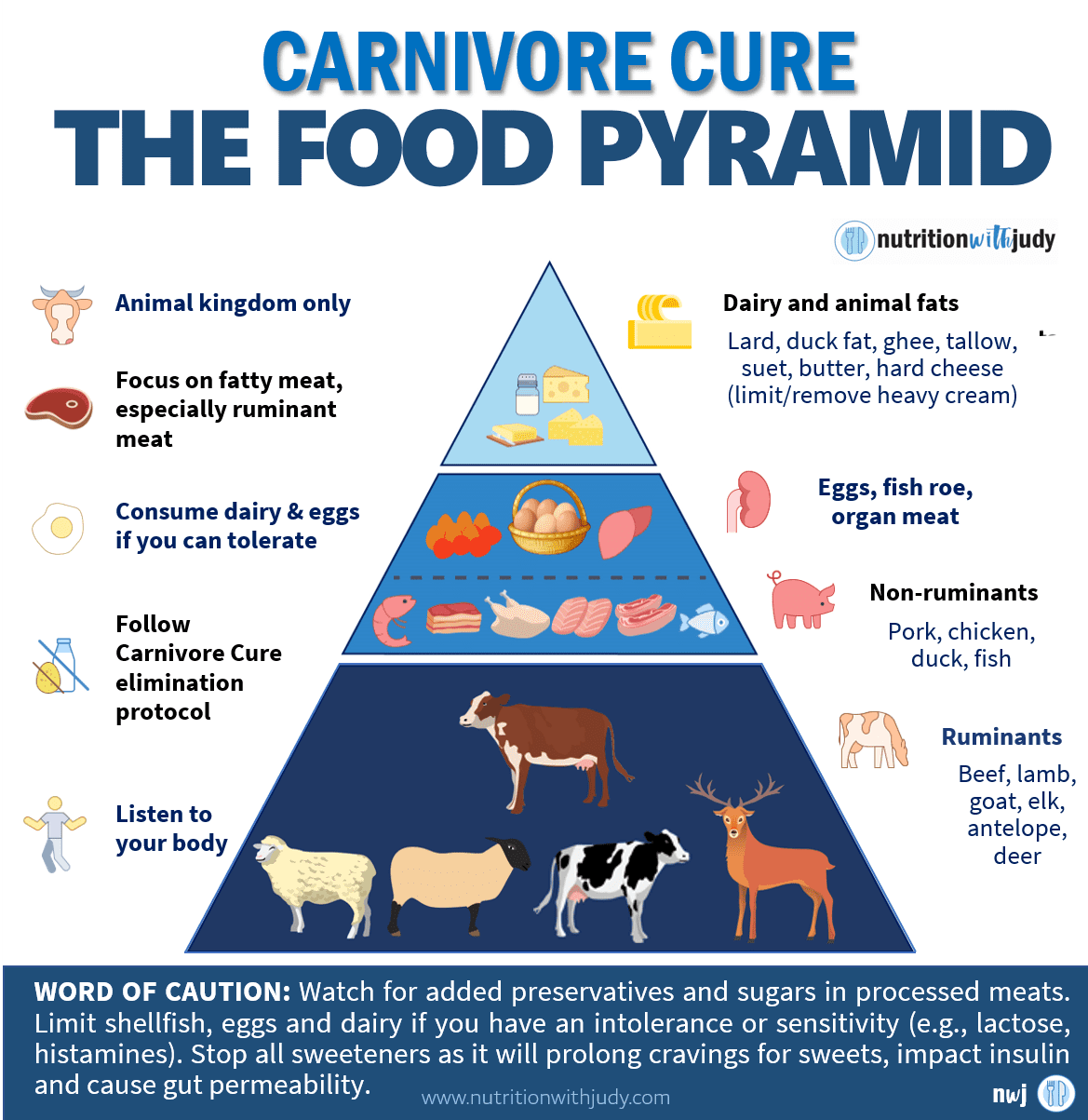

The carnivore diet is a unique dietary approach centered around consuming primarily animal products. It’s a regimen that emphasizes meat consumption and excludes or minimizes plant-based foods. This diet has gained popularity for its many health benefits, including weight loss, improved mental clarity, and better digestion. Here, we explore the various adaptations of the carnivore diet:
- Beef-Only Carnivore Diet: This strict version focuses solely on consuming beef, often favored for its simplicity and effectiveness in eliminating potential food sensitivities. It eliminates all other foods, providing a great baseline for food re-introductions, and is also recommended for individuals looking to support deeper health issues.
- Lion Diet: A more restrictive form, the lion diet limits intake to ruminant meats (such as elk, goat, beef, lamb, and bison), salt, and water, aiming to support deeper health issues such as autoimmunity and chronic health conditions. The lion diet is also a great place to start for an elimination diet.
- Nose-to-Tail Carnivore Diet: This variation encourages eating all parts of the animal, including organs and bones, to maximize nutrient intake and honor the principle of whole-animal utilization. There’s a lot of nuance regarding consuming organ meats, making it important to work with a trusted carnivore diet practitioner to explore if this is right for you.
- Zero-Carb Carnivore Diet: While all carnivore diets are low in carbohydrates, this approach includes minimal carb content from dairy and eggs. This way of eating is technically nearly zero-carb, offering more food variety, and is a great option for those who do tolerate dairy and eggs.
- Carnivore Keto Diet: This combines the principles of the ketogenic diet with the carnivore diet, emphasizing high-fat, moderate-protein animal foods while maintaining ketosis. It includes some non-animal varieties that are considered safer in terms of plant anti-nutrients and toxin exposure such as avocado and pickles.
- Carnivore-ish Keto Diet: A more flexible approach, this version includes some plant-based foods such as nuts and low-carb vegetables, along with animal products. This variation and the carnivore keto diet variation are both better suited for individuals who are metabolically healthy and don’t suffer from any food addiction issues.
- Animal-Based Diet: This diet is primarily carnivorous but allows for some inclusion of plant foods, focusing on animal products as the main source of nutrition while incorporating select plant-based foods for variety and additional nutrients.
Each of these variations of the carnivore diet caters to different health needs and preferences, offering a range of options for those interested in exploring this dietary lifestyle.
What Are the Benefits of the Carnivore Diet?
The carnivore diet, a dietary approach centered around animal-based foods, has been gaining traction for its array of health benefits. This summary delves into the numerous advantages reported by individuals following this diet, underscoring its potential impact on various aspects of health and well-being.
- Simplified Nutrition: One of the most significant benefits of the carnivore diet is its simplicity. By focusing on animal products such as meat, fish, and eggs, it eliminates the need for complicated meal planning. This simplicity also helps in avoiding processed foods and additives, leading to a more natural way of eating.
- Weight Loss and Management: Many adopters of the carnivore diet report effective weight loss and improved body composition. The high protein content leads to increased satiety, reducing overall calorie intake. The diet’s low-carb nature also encourages the body to burn fat for energy, aiding in fat loss.
- Improved Digestive Health: The carnivore diet can be particularly beneficial for digestive health. Its elimination of fiber and most carbohydrates can reduce bloating and inflammation in the gut, offering relief to those with digestive issues such as IBS or Crohn’s disease.
- Enhanced Mental Clarity: Proponents of the diet often report heightened mental clarity and cognitive function. This could be attributed to the steady energy supply from fats and proteins, as opposed to the fluctuations caused by carbohydrate intake.
- Reduction in Inflammation: The diet’s emphasis on high-quality animal proteins and fats, and the elimination of potentially inflammatory plant-based foods, can lead to a reduction in chronic inflammation. This is particularly beneficial for individuals with autoimmune conditions or inflammatory diseases.
- Better Blood Sugar Control: By avoiding carbohydrates, the carnivore diet helps maintain stable blood sugar levels, which is beneficial for people with diabetes or metabolic syndrome. This stable blood sugar can also improve energy levels and mood.
- Improved Joint Health: The high content of omega-3 fatty acids, especially from fatty fish, and the absence of inflammatory foods, can contribute to better joint health and reduce symptoms of arthritis.
- Skin Health Improvements: Many individuals on the carnivore diet report improvements in skin health, including a reduction in acne, eczema, and other skin conditions. This could be due to the elimination of sugar and processed foods, which are often linked to skin issues.
- Enhanced Athletic Performance: The diet’s high protein content supports muscle growth and repair, making it popular among athletes. Additionally, the steady energy supply from fats can enhance endurance and performance.
- Heart Health: Though counterintuitive, some studies suggest that a diet high in animal fat and protein can improve heart health by reducing triglycerides and high blood pressure.
- Hormonal Balance: The nutrient density of the carnivore diet, especially in terms of vitamins and minerals crucial for hormonal function, can lead to improved hormonal balance.
- Stronger Immune System: A diet rich in animal proteins provides essential amino acids and nutrients that are vital for a robust immune system.
The carnivore diet offers a range of health benefits, from weight management and improved mental clarity to better digestive health and reduced inflammation. While everyone requires an individualized approach to this way of eating, its growing popularity and the reported health benefits make it a compelling option for those seeking a simplified, nutrient-rich dietary approach.
Who Should Try the Carnivore Diet?
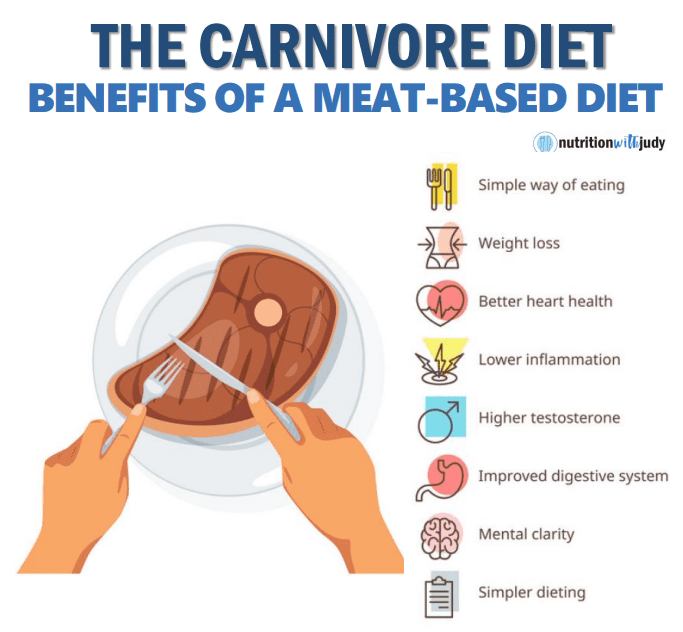

The carnivore diet, with its focus on animal-based foods, is an intriguing dietary approach suitable for a diverse group of individuals seeking various health benefits. Primarily, it’s an excellent option for those looking to simplify their diet, reduce inflammation, improve digestive health, and achieve weight loss. It’s particularly beneficial for people struggling with autoimmune diseases, inflammatory conditions, and digestive issues such as leaky gut, as it eliminates most common allergens and inflammatory foods.
However, the beauty of the carnivore diet lies in its adaptability, making it potentially suitable for virtually anyone. Customization is key. For instance, individuals with higher energy needs or athletes might incorporate a higher fat intake for sustained energy. Those with specific health concerns can adjust their diet to include ‘nose-to-tail’ eating, for targeting specific nutrient deficiencies. Remember, it’s important to work with your trusted carnivore diet practitioner to ensure you’re eating the appropriate amount of organ meats as you don’t want to risk vitamin A toxicity.
Moreover, people transitioning from a standard diet can start with a more flexible approach, such as the ‘carnivore-ish’ diet, which includes limited plant foods. This allows for a gradual adaptation and can be particularly beneficial for those concerned about dietary restrictions or nutrient diversity. By customizing the carnivore diet to individual needs and preferences, it can become a sustainable and beneficial lifestyle choice for a wide range of people.
Transitioning to the Carnivore Diet
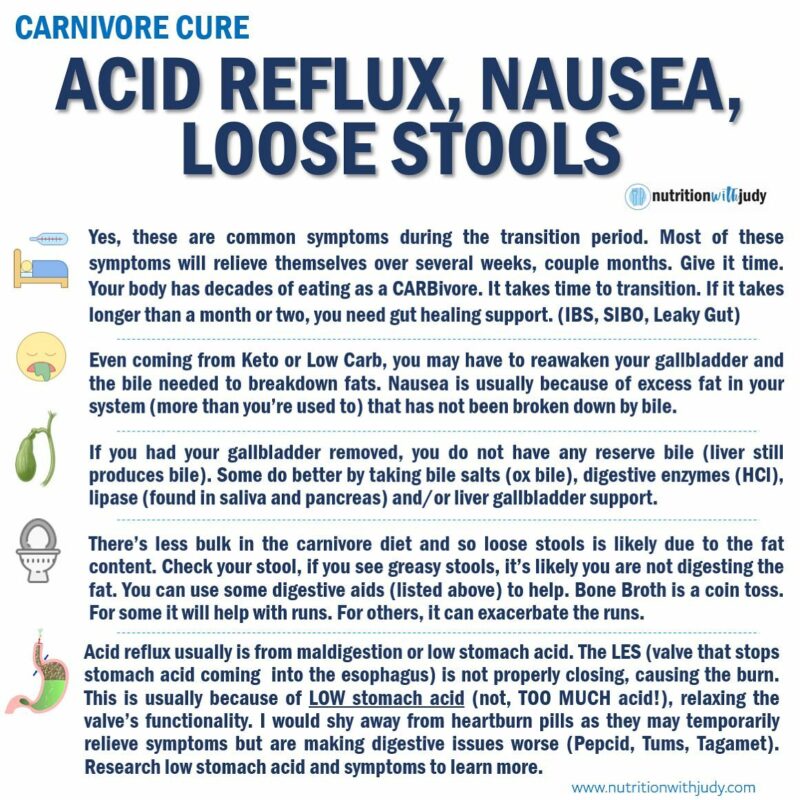

Transitioning to the carnivore diet, similar to any significant dietary change, can lead to several side effects as the body adapts to new eating habits. These effects vary depending on individual health, previous diet, and the body’s response to a high-protein, high-fat, and virtually zero-carb regime.
One of the most common side effects is the “keto flu,” characterized by symptoms such as fatigue, headaches, and irritability. This occurs as the body shifts from using carbohydrates to fats for energy. Electrolyte imbalance, particularly during the initial phase, can exacerbate these symptoms, making it essential to ensure adequate salt and water intake.
Digestive issues, such as constipation or diarrhea, are also common. The sudden increase in protein and fat, coupled with the reduction or elimination of fiber, can disrupt normal digestive processes. Gradually increasing meat intake and including sources of natural fats can help ease this transition.
Additionally, some individuals may experience temporary changes in mood or cognition, often due to fluctuations in blood sugar levels as the body adjusts to a lower carbohydrate intake. Increased cravings, especially for sugar or carbohydrates, are not uncommon as the body adapts to the new diet.
It’s important to note that while these side effects are common, they are typically temporary, often resolving as the body fully adapts to the carnivore diet.
Oxalate Dumping
Oxalate dumping, a critical aspect to consider when transitioning from high-oxalate diets to low-oxalate diets such as the carnivore diet, involves the body’s process of eliminating accumulated oxalates. Oxalates are a form a plant anti-nutrient and are organic compounds found in many plant-based foods, including leafy greens, nuts, and seeds. In some individuals, these oxalates can accumulate over time in various tissues of the body, including bones, joints, and organs.
When one switches to a diet significantly lower in oxalates, such as the carnivore diet, the body begins to release these stored oxalates, a phenomenon known as oxalate dumping. This release can result in a range of detoxification symptoms. Common manifestations include skin issues such as rashes or itching, joint pain or stiffness, urinary problems, gastrointestinal discomfort, and even changes in mood or energy levels. These symptoms are indicative of the body’s natural process of eliminating these compounds and can vary in intensity based on the degree of accumulated oxalates and individual health factors.
Given the potential discomfort associated with oxalate dumping, it is often recommended that individuals transitioning to a low-oxalate diet such as the carnivore diet do so gradually. This gradual approach allows the body to adjust to the decreasing oxalate levels more comfortably, helping to reduce the intensity of detoxification symptoms. For example, one might start by replacing high-oxalate vegetables with lower-oxalate options, then progressively eliminate plant-based foods in favor of meat, fish, and animal products.
Staying well-hydrated is crucial during this transition, as proper hydration can aid in flushing out oxalates from the body. Additionally, certain supplements may be beneficial in supporting the body’s detoxification processes. These might include magnesium and calcium, which can bind to oxalates in the gut, preventing their absorption.
It’s also important for individuals to listen to their bodies and adjust their diet transition pace accordingly. If symptoms become too uncomfortable, slowing down the reduction of oxalates can provide relief. In some cases, consulting with a healthcare professional knowledgeable about the carnivore diet and oxalate dumping can provide personalized guidance and support.
While the carnivore diet offers numerous health benefits, attention must be paid to the process of oxalate dumping when transitioning from a high-oxalate diet. A gradual approach, coupled with hydration, potential supplementation, and individualized pacing, can make the transition smoother and more comfortable, ensuring a successful adoption of the carnivore diet.
Tips for Preventing Keto Diarrhea
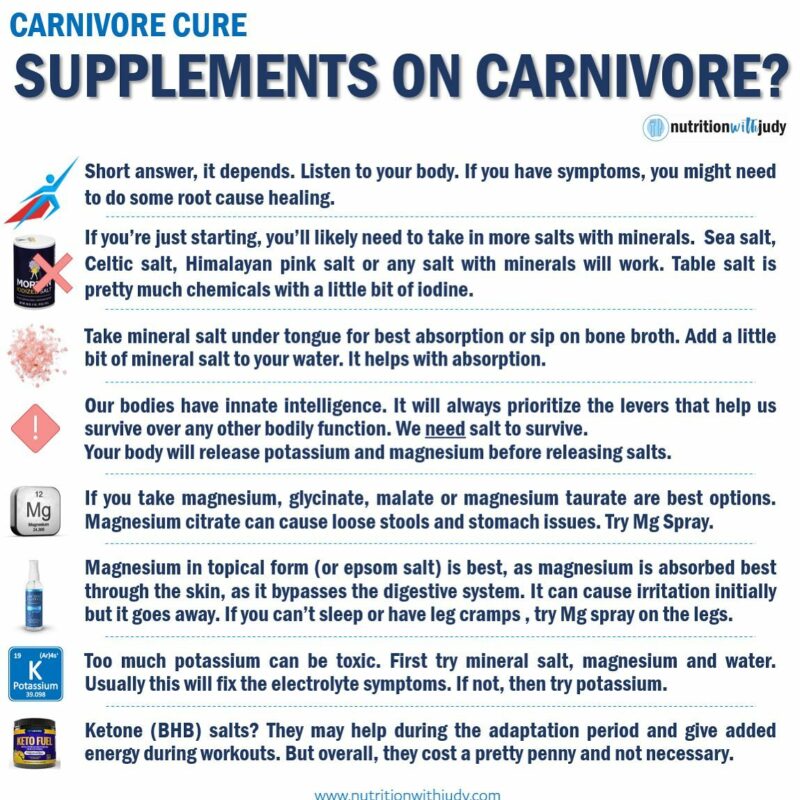

Transitioning to the carnivore diet, especially from a standard high-carb diet, can sometimes lead to keto diarrhea. This is often a temporary side effect as the body adapts to a higher fat, low-carb intake. To help prevent this, there are several practical steps one can take, along with temporary supplement supports.
Firstly, it’s important to gradually increase fat intake. A sudden switch to high-fat foods can overwhelm the digestive system. Start by slowly incorporating more fatty meats and animal fats into your diet, allowing your body to adjust.
Secondly, staying hydrated is crucial. The carnivore diet leads to changes in how the body retains water and electrolytes. Increasing water intake, along with ensuring adequate salt consumption, can help maintain electrolyte balance, which is key in preventing diarrhea.
For additional support, certain supplements can be beneficial during the transition. Hydrochloric acid (HCl) is often recommended for proper digestion for the increased protein intake with the carnivore diet. We often recommend Hydro-Zyme or Betaine Plus HP for stomach acid supports. Ox bile salts and lipase are also a great way to support fat digestion temporarily. Beta Plus is an option that’s tolerated by most of our clients. Our Gut Healing Kit is often recommended for those transitioning to the carnivore diet and looking for additional gut support with HCl, ox bile, immunoglobulins, and practitioner-grade probiotics.
Lastly, it’s important to listen to your body and make dietary adjustments as needed. If symptoms persist, consulting your trusted healthcare professional for personalized advice is recommended.
Closing Thoughts On Keto Diarrhea and the Carnivore Diet
Adopting the carnivore diet can bring about various health benefits, but it’s not uncommon to experience keto diarrhea during the initial transition phase. This condition typically arises as the body adjusts to a diet high in fats and proteins and low in carbohydrates. Key strategies to prevent and manage keto diarrhea include gradually increasing fat intake, ensuring proper hydration, maintaining electrolyte balance, and balancing protein with fats. Supplements such as digestive enzymes, which aid in fat digestion, and probiotics, which can support gut health, can also provide temporary relief during this adjustment period.
However, it’s essential to understand the nuances of keto diarrhea as it relates to the carnivore diet. While it’s a common side effect for newcomers to the diet, its persistence over a long period, especially beyond six months, is unusual and could signal deeper health issues. This extended duration of keto diarrhea could be indicative of underlying health concerns such as food intolerances, gut microbiome imbalances, or other digestive system disorders. It’s important to recognize that every individual’s body reacts differently to dietary changes, and what works for one person may not be suitable for another.
In cases where keto diarrhea persists for an extended period, it’s advisable to seek medical advice. Our team is always available to provide a comprehensive assessment, potentially including tests to pinpoint the root cause of the ongoing symptoms. This could involve examining aspects such as gut flora composition, digestive enzyme production, or even looking into specific food sensitivities that might be exacerbated by the diet. Root cause conditions such as Chronic Inflammatory Response Syndrome (CIRS) may also be evaluated.
Adjusting the diet based on these findings might be necessary. For instance, incorporating a wider variety of animal-based foods, adjusting fat-to-protein ratios, or even including specific supplements targeted at addressing the identified issues could be beneficial.
While keto diarrhea is a common and typically temporary side effect of transitioning to the carnivore diet, its persistence over a longer period should not be ignored. Paying attention to one’s body and seeking professional health advice if symptoms persist is crucial. This approach ensures that the diet not only meets nutritional needs but also aligns with individual health requirements, leading to a more successful and sustainable dietary lifestyle.
Work With Our Trusted Carnivore Diet Functional Nutritional Therapy Practitioners
The Nutrition with Judy practice is honored to be a trusted carnivore diet practitioner support serving clients from around the globe. We’re passionate about helping our clients achieve root-cause healing in order to lead the best quality of life possible that’s nearly symptom-free. Our team is dedicated to educating our community about the incredible benefits of the carnivore diet. We welcome you to explore our free resources and are always available to support you through personalized protocols. Our Symptom Burden Assessment (SBA) is the perfect starting point for discovering your root cause and is required to work with our team— you can learn more in-depth about this powerful tool here.
Start your root-cause healing journey today and contact us any time with any questions or concerns.
DISCLAIMER: This content is for educational purposes only. While we are board-certified in holistic nutrition and are nutritional therapy practitioners, we are not providing medical advice. Whenever you start a new diet or protocol, always consult with your trusted practitioner first.



